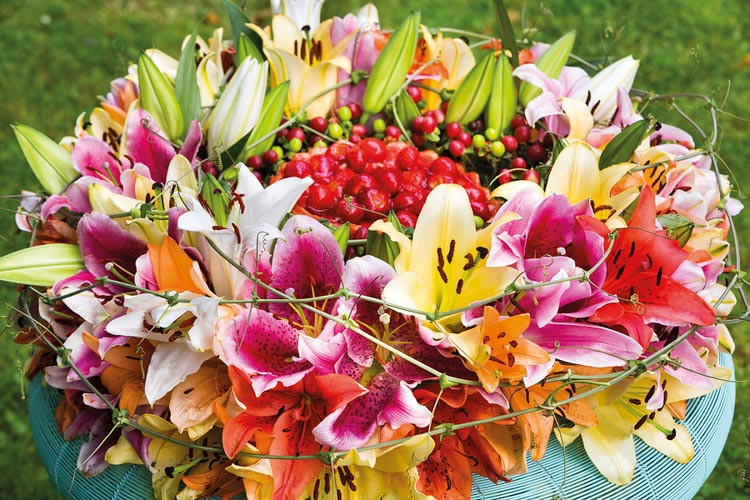Lilium (Lily)
Lilium, commonly known as the lily, is a captivating group of perennial flowering plants that belong to the Liliaceae family. With over 100 lily species and numerous hybrids, they offer a diverse array of colors, shapes, and sizes, making them an alluring addition to any garden or floral arrangement.
Lily flowers: They are prized for their striking, trumpet-shaped blooms that come in various colors, including white, yellow, pink, red, orange, and purple. Some lilies have bicolor or speckled patterns, adding to their visual appeal. The flowers can be upward-facing, outward-facing, or pendant (downward-facing), depending on the variety.
Fragrance: Lilies also vary in terms of fragrance, with some, like Oriental lilies, being heavily scented, while others, such as Asiatic lilies, have little to no fragrance.
Blooming season: The lily blooming season ranges from mid-spring to early fall, depending on the specific variety and local climate.
Growth habit: Lilies are herbaceous perennials that grow from underground bulbs. They have a vertical growth habit, with most varieties growing between 2-6 feet (60-180 cm) tall, although some dwarf varieties and species lilies may be shorter, and certain hybrids can grow taller.
Lily types: Lily plants can be classified into several groups, including Asiatic, Oriental, Trumpet, Martagon, and species lilies, each with its unique features and characteristics.
Hardiness: Lilies exhibit a range of hardiness levels, with most varieties falling between USDA Hardiness Zones 3 to 9.
Uses: Lily plants have a variety of uses in landscaping and floral arrangements. They are popular for adding vertical interest and vibrant colors to garden beds, borders, and mixed perennial gardens. Lily flowers also make excellent cut flowers, with their striking blooms and, in some cases, delightful fragrance, adding elegance to bouquets and arrangements. They can be planted in containers as well, allowing for versatile placement and easy rearrangement.
Culture: Lily bulbs prefer well-draining, fertile soil with a slightly acidic to neutral pH (6.0-7.0). They thrive in locations that receive at least 6 hours of sunlight per day, although some varieties can tolerate partial shade.
Symbol: Lilies hold symbolic significance in various cultures and throughout history, often representing purity, innocence, rebirth, and motherhood. Their enchanting beauty and versatile nature make lilies a beloved choice for gardens, bouquets, and special occasions.
In summary, Lily plants offer gardeners a world of elegance, vibrant colors, and delightful scents. With proper care and attention, these captivating flowers can transform your garden into a stunning visual and sensory experience. Embrace the allure of lilies and elevate your outdoor space with their timeless charm.

